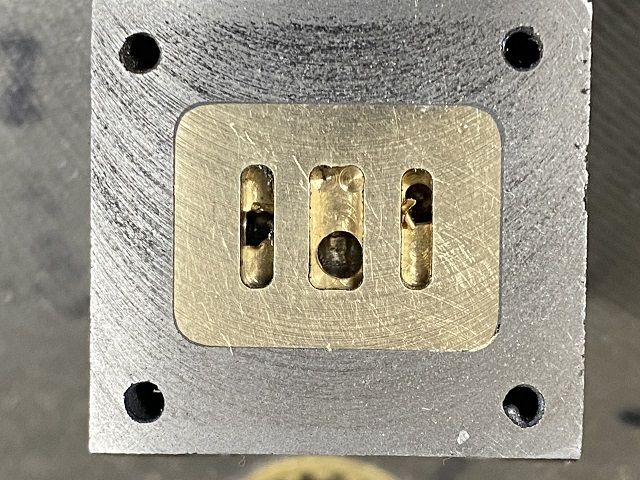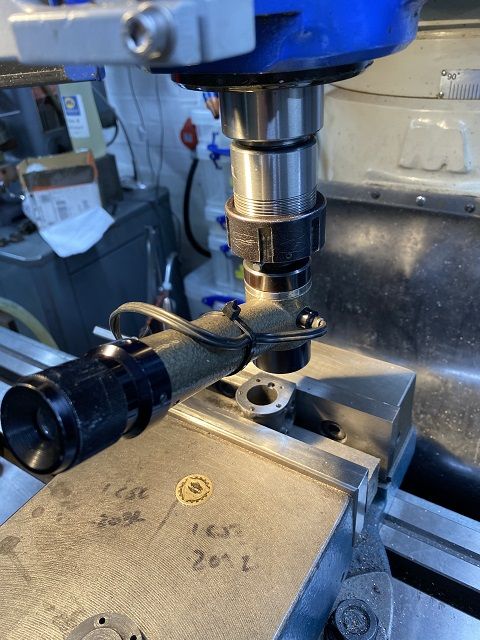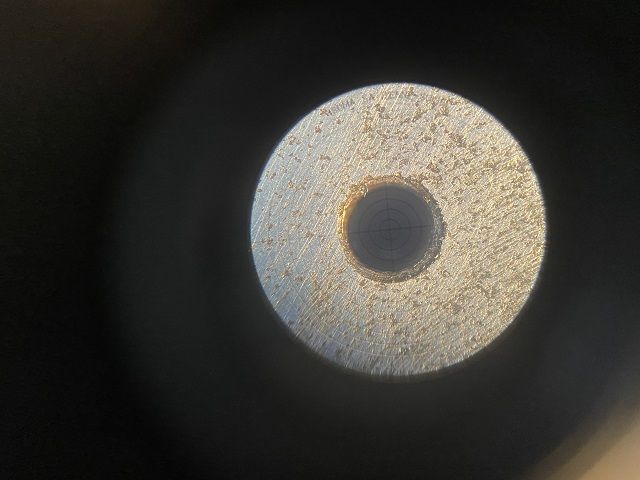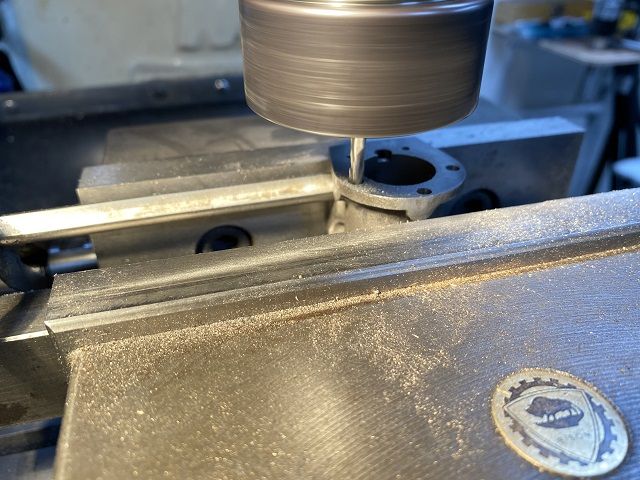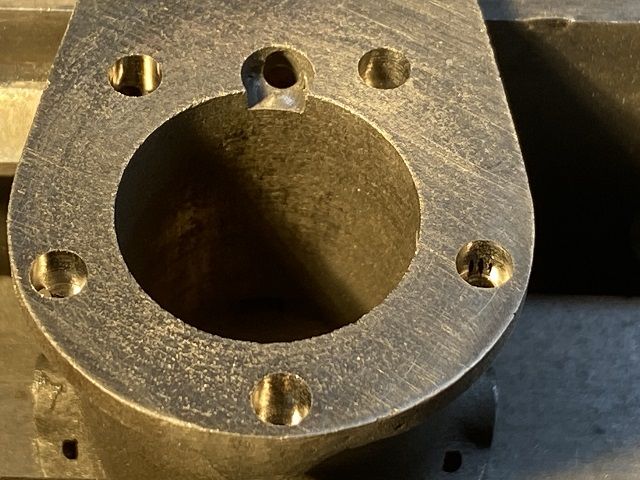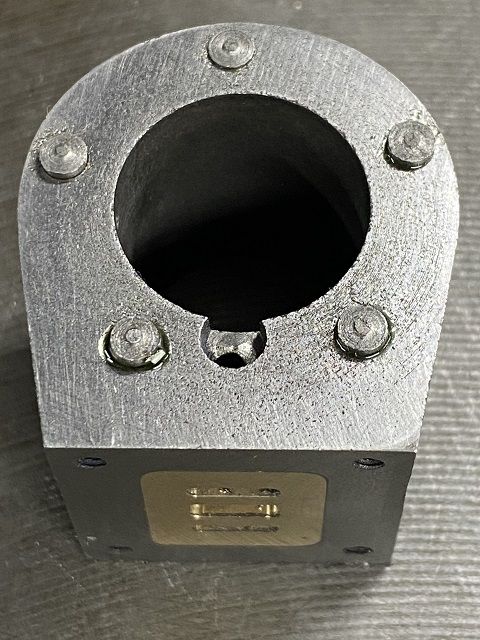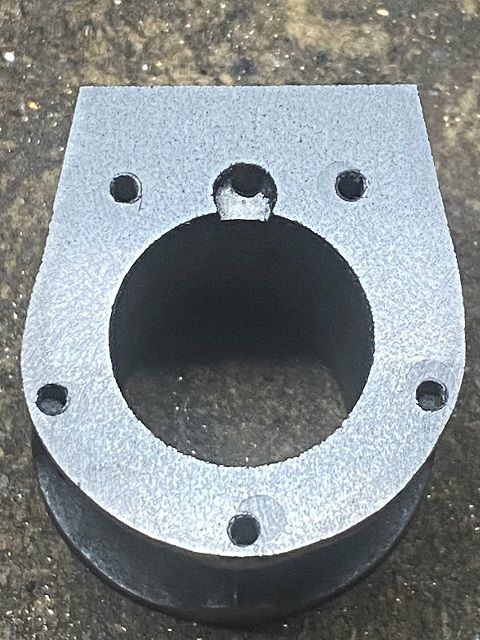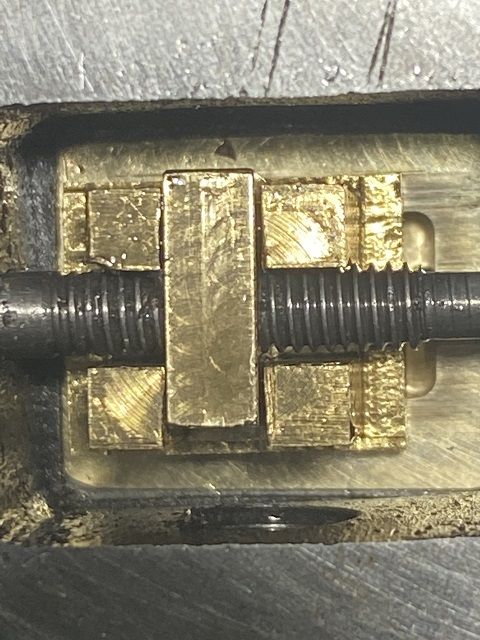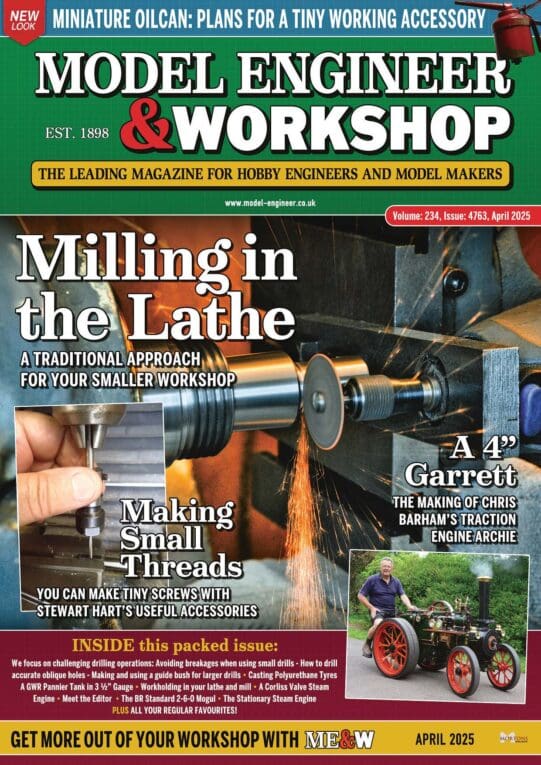JBWelded the insert in yesterday morning. Looked at it at 8 in evening and had not gone off. Had left it compressed in the flypress in workshop. Obviously not warm enough. Found suitable machine clamp and clamped it together and left on bathroom radiator for 10 hours. That cooked it.
Into the mill and ran facemill over the top. The drilled guide holes through the brass into the casting at points coinciding with original exit of diagonal hole. Set up at 25 degrees and drilled through from end of cylinder to meet up with drilled hole. I had cleaned the echaust pprt up as much as possible before the JBWeld had gone off and ran a tap back down it. Set it up in mill and ran a long centre drill down to meet up with drilled hole.
Pretty happy with the end result. Just needs lapping.

In the end I opted to use a 3.5mm slot mill to remove the 5 tapped holes for the top cover. Before i did this I hunted high and low for some cast iron remnants to use to plug the holes. Eventually found a 20mm length left over from the spigot on the cylinder for the CHUK2 I had recently made. It was 20mm diameter and had a hole in one end. Was it going to be enough. I slit it lengthways to give me four triangular sections 20mm long. Was able to roughly centre this in the three jaw chuck and the checked whether it would stand a interrupted cut and took one piece down to 5mm dia, Happy I could do this I the set the cylinder up in the mill and because I could not trust that the holes were on an accurate PCD I set each hole up one by one with Isoma optical centre.



The swapped to 3.5mm slot drill and took first hole down to 4mm depth. At this point I finished turning the cast iron down to just over 3.5mm dia and checked fit in hole. All okay so repeated exercise for each hole in turn. End result below.

I turned my bits of cast iron down for each hole in turn. I found that the slot mill cut slightly bigger in couple of cases so took the rod to 3.55mm.
Loctited pegs in place and have left on radiator overnight.

Will clean up (and square up) top of cylinder tomorrow and if necessary make a new top cover. Might bling this up and do it in brass.
Colin
Jim K.


